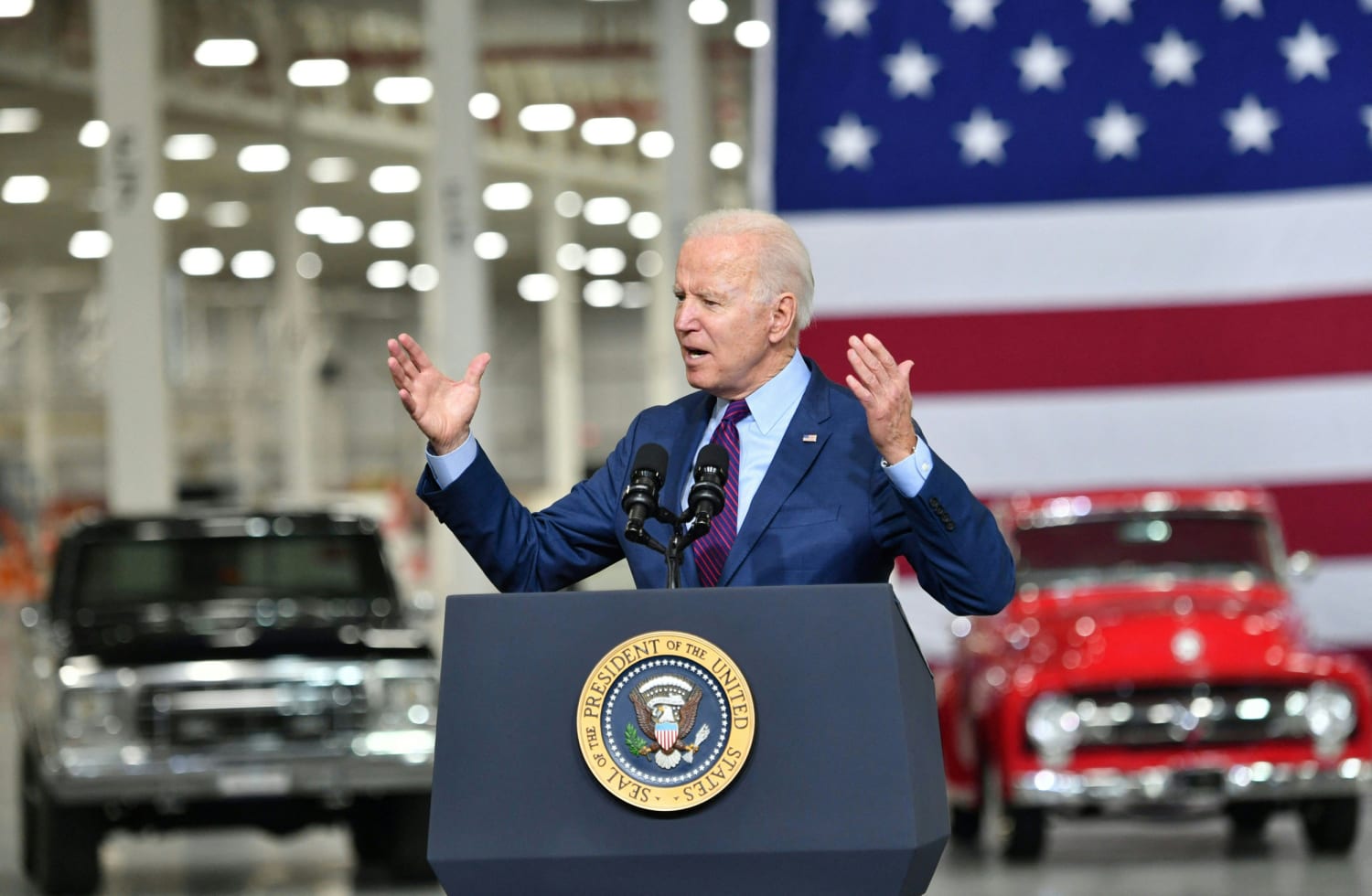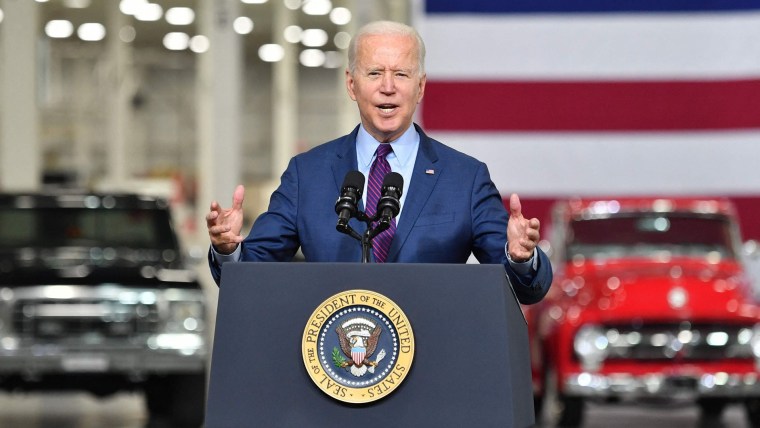President Joe Biden is expected to sign an executive order Thursday setting a national goal for electric and other zero-emissions vehicles to make up half of new cars and trucks sold by 2030, senior Biden administration officials said.
Aiming to show buy-in from the auto industry, Biden will be joined at the White House by Ford and GM executives, along with leaders from the United Auto Workers. In addition to setting the 50 percent-by-2030 goal, the executive order will also kick off the process to replace former President Donald Trump’s more relaxed tailpipe and emissions standards with stricter ones, officials said.
The 50 percent goal, while nonbinding and largely symbolic, aims to set federal expectations for automakers to rapidly make the transition from gas-burning cars and trucks to electric ones, a key component of Biden’s climate change strategy. Transportation accounts for the largest share of U.S. greenhouse gas emissions.
Auto companies appearing alongside Biden will make their own announcements about plans to sell 40 percent to 50 percent zero-emissions vehicles by 2030, officials said. Some automakers have made similar pledges already; GM has said it will sell only electric vehicles by 2035.
“What we’re hearing across the board is a consensus about the direction where this industry is going and a coming together around the recognition that this is the moment of truth — not just for climate action, for economic action, as well,” said a senior Biden administration official who briefed reporters on condition of anonymity before the announcement.
The big three U.S. automakers — GM, Ford and Stellantis, formerly Fiat Chrysler — said the agreement reflected their “commitment to be leaders in the U.S. transition to electric vehicles.” But in a joint statement, they emphasized that they would need reliable federal help to achieve the goal.
“This represents a dramatic shift from the U.S. market today that can be achieved only with the timely deployment of the full suite of electrification policies committed to by the administration in the Build Back Better Plan,” the major automakers said, specifically citing purchase incentives, charging stations and federal investments in research, development and supply chains.
The rapid shift toward electric vehicles has stoked concerns for U.S. autoworkers about more outsourcing of jobs overseas, as the U.S. remains far behind Europe and Asia in building and buying electric cars. The brushless motors in electric vehicles take fewer worker hours to build and are far more likely to be made with nonunion labor or packaged with batteries built by subsidiaries that pay less.
“We are falling behind China and Europe as manufacturers pour billions into growing their markets and expanding their manufacturing,” United Auto Workers President Ray Curry said, adding: “The UAW focus is not on hard deadlines or percentages, but on preserving the wages and benefits that have been the heart and soul of the American middle class.”
Included in the goal that half of new vehicles sold be “zero-emissions” by 2030 are battery electric vehicles, which have no internal combustion engines, and plug-in hybrid cars, which have gasoline engines but use them only if the battery runs out. Fuel cell electric vehicles, which burn hydrogen and emit no carbon dioxide, also count, Biden administration officials said.
In tandem with Biden’s executive order, the Transportation Department and the Environmental Protection Agency on Thursday will begin the process of replacing the Trump-era fuel efficiency and tailpipe emissions standards. The Trump administration scaled back the stricter standards put in place during the Obama administration, and now Biden will seek to restore them — and then make them even stricter.
The percentage improvements in emissions and fuel economy that the new rules will require were not immediately clear. A White House fact sheet indicated that the administration will effectively leave the Trump standards for miles per gallon in place until model year 2024 and for greenhouse gas emissions until model year 2023.
The White House said the standards would “build on the momentum” from a deal automakers struck with the state of California in 2019 to build vehicles more efficient than the federal government required. People briefed about the Biden administration’s plans previously told NBC News that the administration would first require autos nationwide to comply with the stricter California standards and then ramp up the requirements from there. Under that scenario, by 2026, vehicles would have to be even more efficient than was required by the Obama administration’s rules, which Trump rolled back.
The push to get automakers to offer fewer and fewer gas-burning vehicles comes as the Biden administration has struggled to secure the massive federal investments in electric vehicle infrastructure that experts say is needed to make it viable for Americans on a wide scale.
Biden this year called for $174 billion in federal spending to build a network for a half-million electric vehicle charging stations across the country, in a nod to one of the biggest impediments to EV adoption: fear of running out of battery. But the bipartisan infrastructure deal he reached with Congress included just $7.5 billion for that priority. It is unclear whether more might be added in the larger spending and climate bill that Democrats plan to pass without GOP support.
Source: | This article originally belongs to Nbcnews.com











